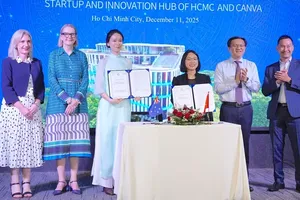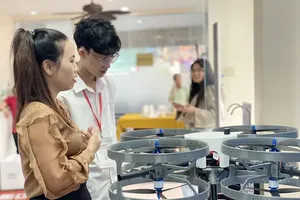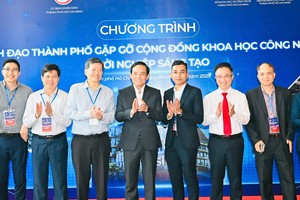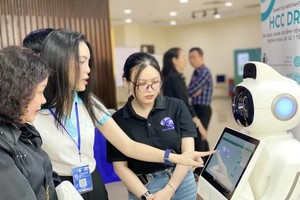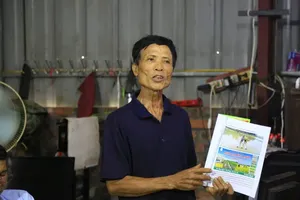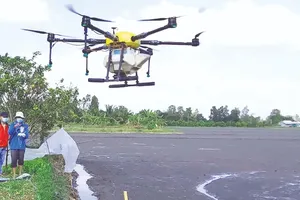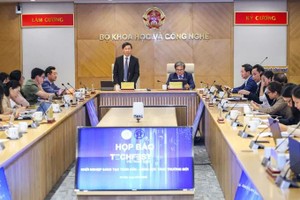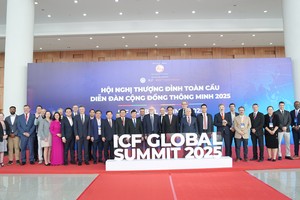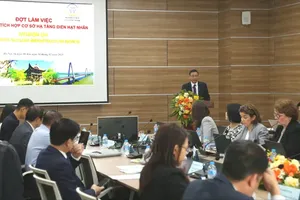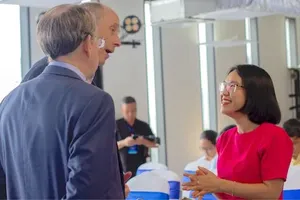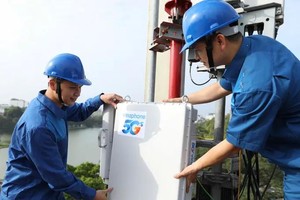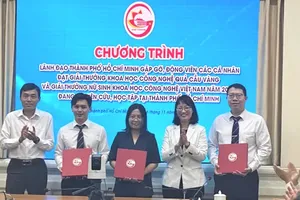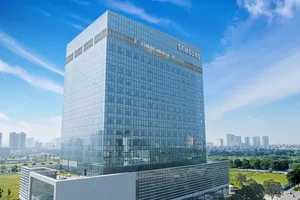
After more than five grueling years of negotiations, the UN Convention on Cybercrime was finally adopted on December 24, 2024. Clause 1 of Article 64 of the convention stipulates: “This Convention shall be open for signature by all States in Hanoi in 2025 and thereafter at the United Nations Headquarters in New York until 31 December 2026.”
Deputy Director-General Nguyen Huu Phu of the Department of International Law and Treaties (under the Ministry of Foreign Affairs – MoFA) shared some of the behind-the-scenes effort. He explained that to persuade member states to agree to organizing the convention in Hanoi, the Vietnamese delegation hammered home the importance of the Asia-Pacific region. This region, including Vietnam, is arguably the most dynamic development hub on the planet, contributing over 70 percent of global GDP.
According to the Deputy Director-General, this perspective won over many countries, who agreed it was “highly fitting” for the convention to be opened for signature in Hanoi in 2025, a year already packed with special milestones in Vietnam’s history.
As stated by Deputy Foreign Minister Dang Hoang Giang, who served as the Head of Vietnam’s negotiating team, the lobbying campaign to host the ceremony wasn’t an afterthought. It was launched and “deployed continuously” in the last three months of 2024, immediately after the convention was adopted.
This was reportedly a methodical, aggressive, and multi-level diplomatic campaign, waged simultaneously in numerous capitals, especially those of nations playing a key role in the tech sphere. The goal, he said, was to secure a solid international consensus for Vietnam’s bid.
The MoFA also reported that, in recent months, Vietnam has organized a flurry of events aimed at introducing the convention, updating partners on its implementation, and publicizing the upcoming ceremony in Hanoi:
- a seminar titled “Towards Hanoi: The Opening for Signature of the UN Convention on Cybercrime” on March 26, 2025, co-hosted by Vietnam and the UN Office on Drugs and Crime (UNODC) in Vienna, Austria;
- “The Path to Hanoi: Opening for Signature of the Cybercrime Convention,” an event co-held by the MoFA and UNODC at the UN during the High-Level Week of the 80th General Assembly.
The latter was a major push to promote the convention and attract high-level commitments from other nations to sign and ratify it.
“The signing of the UN Convention on Cybercrime in Hanoi will certainly be an important milestone. But this journey doesn’t stop there. Implementation will be the measure of true success, and development partners have a critical role in supporting this process. While international agreements lay the foundation, it’s the national application and local action that will ultimately decide whether they are fulfilled.”
Nnenna Ifeanyi-Ajufo, Vice Chair, African Union Cybersecurity Expert Group
Deputy Minister Dang Hoang Giang was quick to point out that adopting the convention is really just the beginning. As implementation gets underway, nations will have to work hard to harmonize different viewpoints, find common ground, strengthen connections, and maintain goodwill. It’s no secret that major differences in institutions, legal systems, and human resource levels are significant barriers to effective global cooperation.
Senior Lieutenant Colonel Trieu Manh Hung, Deputy Director of the Cybersecurity and High-Tech Crime Prevention Department (under the Ministry of Public Security), stated that Vietnam is preparing on all fronts, from legal, technical, and human resources aspects, to ensure full participation.
He explained that data processing activities must now meet the requests of other countries, not just domestic needs. To achieve this, the capacity of officers and specialized cybersecurity staff must continue to be upgraded and adjusted to meet the convention’s demands.
Furthermore, Vietnam has significant “legal homework to do” to complete its framework. This is crucial to ensure the smooth execution of activities like the collection, analysis, and transfer of electronic evidence. The National Cyber Security Association also confirmed plans to standardize the skills of the cybersecurity workforce within Vietnamese enterprises.
Vietnam isn’t alone. Other nations are actively preparing to implement the convention and are taking “domestication” steps. The European Union (EU) has reportedly agreed to sign and ratify as a unified bloc. Singapore, meanwhile, has already passed its Online Criminal Harms Act 2023 to boost its control over online crime. The nation is also coordinating with ASEAN to build a regional CERT (Computer Emergency Response Team) network and a Cybersecurity Capacity Building Program.
These are seen as foundational steps for countries in the region to synchronize their laws, tech, and responses ahead of the global pact. According to UN experts, the sight of so many nations simultaneously upgrading their legal infrastructures shows a powerful, proactive consensus. It signals they view the convention not just as a legal tool, but as “a foundation for trust, transparency, and safety in the global digital space.”
State President Luong Cuong chairs final rehearsal for UN Cybercrime Convention signing ceremony
On October 23, State President Luong Cuong visited the National Convention Center in Hanoi to inspect the preparations and preside over the final dress rehearsal for the opening ceremony of the UN Convention on Cybercrime, set to take place from October 25-26.
At the rehearsal, various units reported to the President that preparations were basically complete. All plans for managing traffic flow, welcoming delegations, and ensuring security and order at the event venues and delegate accommodations were reportedly being deployed exactly as planned.
In his concluding remarks, President Luong Cuong instructed all relevant agencies to meticulously review the entire script, paying special attention to ceremonies, reception, security, and media. He stressed the need to ensure the opening ceremony "is solemn, thoughtful, and portrays Vietnam as a proactive, professional, and friendly partner in international integration.”
He also directed them to promptly handle any arising issues and ensure all preparations remain on schedule and at high quality. The President emphasized that all media and communications must accurately and fully reflect the event’s significance and stature, contributing to enhancing Vietnam’s image, role, and position on the world stage.
